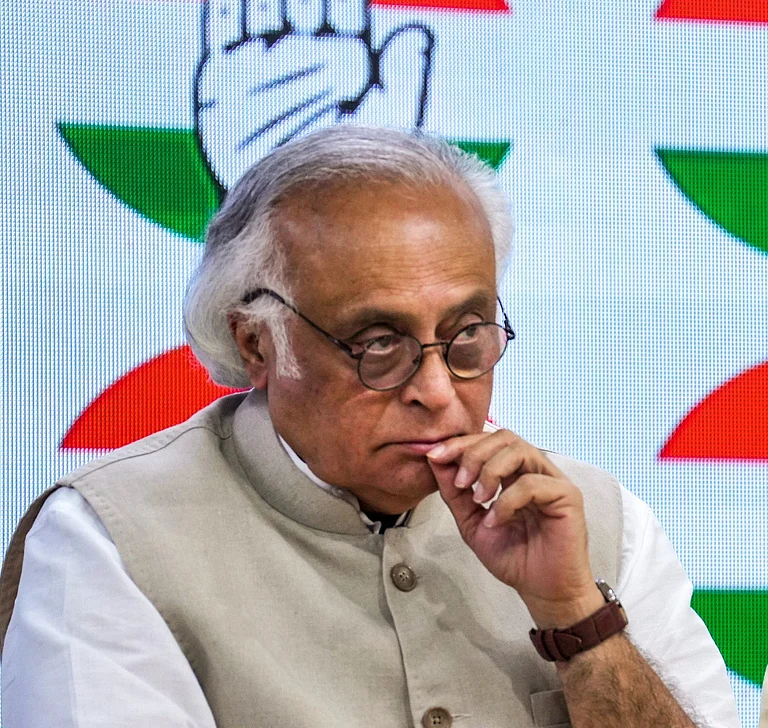The votes in the US mid-term elections are still being counted and the contest for one Senate seat is too close to be called. Victory on this seat would hand the control of US Senate to the Democratic Party.
The US parliament is called US Congress and it has two chambers. The upper chamber is the Senate and the lower chamber is the House of Representatives. In the 2022 mid-term elections, 35 of 100 Senate seats and all 435 House seats were on the ballot. Moreover, 36 states also elected governors.
As of Saturday evening (India time), most projections put the Republicans and Democrats tied at 49 in the Senate, whereas the Republicans are comfortably set to win the majority in the House. NBC News has projected that Republicans have 220 House seats, crossing the 218-majority mark.
The one Senate seat too close to be called is of the Nevada state. Projections put the Republican candidate in the lead with a narrow margin.
Here we explain the US mid-term elections, what's the latest tally, and how it might still take weeks to know which party would control US Congress.
What we know of US mid-term results?
We know two things for certain.
One, Democrats have beaten the Republican Red Wave. Republicans were expected to win 54-55 seats in the Senate but they are tied with the Democrats at 49 as per the latest figures.
Two, despite their unexpectedly poor performance, the Republicans might still control the US Congress. This can happen as the Republicans are already projected to win the House. If they win the final two undecided Senate seats as well, they would end up controlling the Senate as well.
Along with Nevada, the Senate seat in Georgia is also undecided. It has gone to what's called a 'run-off' election. A run-off election is a second round of election that is held when no candidate secures 50 per cent of the votes. The Georgia run-off election will be held on December 6, which means that the control of US Congress might remain undecided until then.
Most projections put the Republicans and Democrats tied at 49 in the Senate. It means if Republicans win both Nevada and Georgia, they would secure the majority. However, Democrats just need to win one of these two seats. Notably, the Democratic Party candidate has secured the most votes in Georgia. It has gone to run-offs as a third Independent candidate secured enough votes to deny both the Democrat and the Republican candidates the chance to secure 50 per cent votes.
The Democrats can secure majority with just 50 seats in the 100-seat Senate as Vice President Kamala Harris would become the 51st tie-breaking vote. The Vice President of the United States presides over the US Senate, similar to how the Vice President in India serves as the Chairperson of Rajya Sabha. Her voting right would give the Democrats Senate majority.
Therefore, the odds as of now favour the Democrats in the Senate as they have to win just one of the two remaining seats. In Georgia, the Democrats were already leading and Nevada remains too close to be called.
How Democrats beat Republican Red Wave
Not just the Republicans fail to wrest a certain number of Democrats-held Senate seats, they also lost one seat to Democrats held by them.
The situation in which one party wins a seat held by the other is called a "flip". Democrats flipped the Pennsylvania Senate seat.
The Pennsylvania flip was also significant as it had turned into the most high-profile mid-term contest and a proxy contest between President Joe Biden and former President Donald Trump as both of them had endorsed the rival candidates and had campaigned for them.
Top Republican leader Senator Lindsay Graham said the performance is "definitely not a Republican wave".
He told NBC News, "Definitely not a Republican wave, that is for darn sure. I think that we are going to be at 51,52 when it is all is said and done in the Senate. If we take back the House, and we get the Senate majority, that is a very good night. A wave would have been New Hampshire and Colorado."
Some key reasons cited for the better-than-expected performance of Democrats are the abortion rights issue, the negative impact of Trump's influence in the Republican Party, and limits to anti-Biden sentiment.
The United States has lately worst inflation in decades and there is great anxiety about the overall situation of the US economy. Yet the angst over Biden administration has not translated into a defeat of his fellow Democrats.
The Washington Examiner notes, "Republicans thought the midterm elections would be run on their preferred topic: criticizing Biden and Congressional Democrats over a limping economy. Yet the Nov. 8 results show there was more potency than had been widely predicted for Democratic-favored issues, including abortion rights...From his Mar-a-Lago estate in South Florida, the former president [Trump] has tried to play captain and kingmaker for Congressional Republicans...That’s not how the midterm elections turned out for Trump, though. Many of his hand-picked candidates were defeated or struggled in otherwise winnable races."
Trump selected a large number of flawed candidates and he made his support to them more about himself than the candidates on the ballots. As a result, a large number of unwinnable Republican candidates were filled, who served as poorly-equipped Trump proxies. They were defeated.
The significance of US mid-term polls
The US mid-term elections are significant as control of the Congress is key to Biden's legislative agenda.
The United States has proper separation of different branches of power. The President —the Executive branch— and Congress —the Legislature— are separately elected.
The US President depends on the US Congress to fund the government as budget is passed by the Congress. If a party opposed to the President wins Congress, then it might lead to a gridlock where budget's passage is delayed because of ideological and political tussle. This leads to shutdowns where the government has no money to run its offices and pay salaries.
If Republicans secure majority, the legislative agenda of Biden and fellow Democrats is bound to be stalled. It comes at a time when Biden is pressing for climate change measures, abortion rights, voter rights, gun regulations, etc.
US mid-terms a victory for Biden, loss for Trump
The consensus, irrespective of the final result of the US Congress, is that Trump has emerged as the loser of the US mid-term elections.
This is because his pitch against Biden and his most-favoured candidates lost and he is roundedly considered a leading cause of Red Wave's failure.
Moreover, the victory of Florida Governor Ron DeSantis puts him in a good position to emerge as a Republican Presisdential candidate against Biden in 2024. Trump has mocked DeSentis.
Biden administration has battled low approval ratings and flak over inflation and the general state of economy in recent months. A good performance is a breather for the administration.
"The midterm election results strengthened President Joe Biden’s hand and weakened former President Donald Trump’s. That is the starting point for the road to the White House," notes Examiner, adding that Biden appears to have performed better in mid-term polls than former Democratic Presidents Barack Obama and Bill Clinton. Both Biden and Clinton went on to serve a second term.
Examiner further notes, "Biden was the big Democratic winner. He was able to hold together the anti-Trump coalition enough to stave off defeat in a number of competitive races. His campaign travel schedule, anti-MAGA [Make America Great Again] messaging, and predictions that the race would swing back toward the Democrats in the end appear to be vindicated. He looks stronger than Clinton or Obama did the day after their first midterm elections, and they both won a second term."
The most high-profile loss for Republicans came in Pennsylvania where the contest turned into a proxy battle between Biden and Trump. The Biden-backed Democrat Lt. Gov. John Fetterman defeated Trump-backed Mehmet Oz.
Pennsylvania mid-term election was the most expensive in America with up to $200 million spent by both the parties.
Pennsylvania is expected to be a key swing state in 2024 US presidential elections and that's why the result is significant.


























